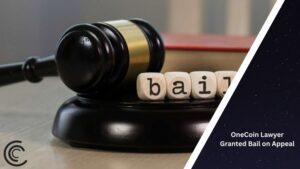Key Takeaways:
- Taxpayers who failed to remit cryptocurrency taxes receive John Doe summonses from a US court.
- The decision particularly required SFOX to provide information regarding its clients who conduct crypto transactions through M.Y. Safra Bank.
With a recent court decision permitting a summons for customer records, the IRS continues to hunt down US taxpayers who did not disclose and pay taxes on cryptocurrency transactions.
The Internal Revenue Service (IRS) has acquired a “courtroom order permitting summons for information related to U.S. taxpayers who did not report and pay taxes on cryptocurrency transactions,” according to a statement released by the U.S. Department of Justice (DOJ) on Thursday.
US District Court Rules The DOJ explained that on September 22, Paul G. Gardephe “authorised the IRS to issue a so-called John Doe summons demanding M.Y. Safra Financial Institution to give facts concerning U.S. taxpayers who might have not reported back to the IRS, and pay taxes on cryptocurrency transactions.“
A John Doe summons is an investigative technique used by the IRS to establish the identities of anonymous users who the IRS believes have violated tax law.
The IRS summons specifically asks for information about SFOX clients who used banking services that M.Y. Safra Bank provided to SFOX customers doing cryptocurrency transactions.
Although taxpayers who transact in cryptocurrencies are mandated to report any affiliated profits and losses on their tax returns, the IRS’s expertise has revealed substantial tax conformance inadequacies pertaining to cryptocurrencies and other digital assets, as further explained in the IRS’s petition in support of the summons.
Users of SFOX could purchase and sell positions in SFOX virtual currency using their money on M.Y. Safra. Therefore, in order to assess whether IRS requirements are followed, the IRS anticipates M.Y. Safra to give information on the identities and crypto transactions of SFOX clients based on their partnerships.
On its platform, SFOX has over 175,000 registered users who have transacted more than $12 billion in transactions since 2015.
CNBC states, Although it is not the first IRS summons for crypto records, it is uncommon because the broker appears to be “pretty small,” suggesting that there may be other summonses in the future, according to Andrew Gordon, tax attorney, CPA, and president of Gordon Law Group in Skokie, Illinois.
At least 10 American taxpayers have been discovered by the IRS as having used the SFOX platform to deal in cryptocurrencies but not reporting those transactions to the IRS as required by law. A John Doe summons, according to the tax authority, is one that does not specify the individual in relation to whose responsibility it is issued.
Owners of cryptocurrencies received a notice from the US IRS in 2019 informing them that they either pay any back taxes or file updated tax forms for their holdings.
Charles P. Rettig, the IRS commissioner, emphasised:
“In order to capture tax fraudsters, the government still heavily relies on its ability to gather third-party information about those who refuse to register their gains from digital assets.”
“Taxpayers are expected to honestly record their tax liabilities on their returns, and liabilities that emerge from bitcoin transactions are not exempt,” said attorney Damian Williams. The government is dedicated to identifying taxpayers who have misrepresented their tax liabilities by failing to register cryptocurrency transactions and ensuring that everyone ends up paying their fair share by using all of the instruments at its discretion, including John Doe summonses.











